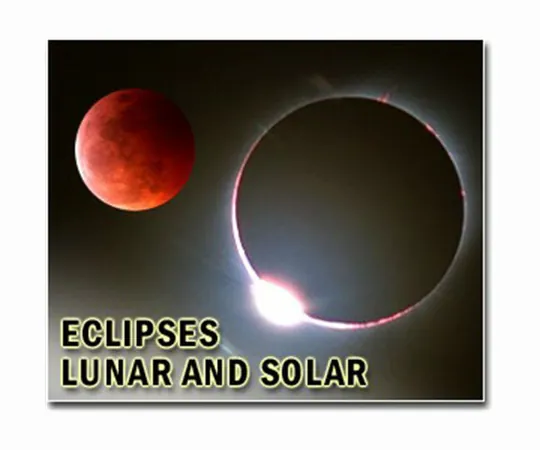
Birds Fall Silent During Solar Eclipse: A Fascinating Discovery
2025-04-10
Author: Mei
Eclipse Brings Unusual Silence in Birds' Song
A groundbreaking study has unveiled that bird songs quieted significantly only in regions experiencing near-total darkness during the breathtaking total solar eclipse on April 8, 2024. This pivotal research, published in Scientific Reports, employs the innovative Haikubox acoustic monitoring network, adeptly gathering community-sourced audio data.
How the Study Was Conducted
Carried out by experts from Loggerhead Instruments and the K. Lisa Yang Center for Conservation Bioacoustics at the Cornell Lab of Ornithology, the study analyzed soundscapes from 344 Haikubox devices scattered across North America. Utilizing a sophisticated neural network model, researchers meticulously filtered sound data, ensuring that human interference was minimized, allowing for a clearer understanding of the eclipse's effects on bird vocalizations.
Unraveling Birds' Mysterious Behavior
Lead researcher David Mann, PhD, noted, "Anecdotal accounts have long hinted at the phenomenon of birds becoming silent or behaving as if it were night during a total eclipse. Our findings affirm this, revealing that birds indeed quiet down during and immediately after totality, closely linked to the level of darkness they experience."
Species-Specific Responses
The responses of birds varied dramatically by species and location. For instance, Black-capped Chickadees in New York experienced silence until after the eclipse, while those in Vermont sang even during totality. In Kentucky, American Robins persisted with their melodies, contrasting starkly with Pine Siskins in Maine, who went completely silent. Mann expressed intrigue at this diversity in reactions, emphasizing, "Understanding why bird responses differ so greatly remains a mystery, despite considering environmental factors like temperature and wind. It seems the sudden totality of darkness was the primary influence."
The Power of Community-Based Monitoring
The meticulous effort to exclude recordings influenced by humans was key to the study's findings. “Initial observations highlighted a noticeable drop in bird songs around totality, but deeper analysis revealed a more complex story. The excitement from human festivities likely perturbed the birds’ natural responses,” Mann explained.
A New Era in Wildlife Research
This study highlights the immense potential of community-driven passive acoustic monitoring systems. Mann remarked, "In an age where technology often disconnects us from nature, Haikubox encourages a deeper engagement. This combination of AI and environmental passion enhances our understanding of nature in an informative way."
Looking Ahead
The findings pave the way for future investigations into how light changes, such as those caused by pollution or eclipses, affect avian behavior. The collaborative Haikubox initiative not only enriches our knowledge base but underscores the essential role of citizen scientists in wildlife research. Mann encourages people to contribute: "By placing a Haikubox in your backyard, you add to the vast library of over one billion acoustic recordings we've accumulated, propelling us towards groundbreaking discoveries in animal behavior."
Study Published for All to See
The comprehensive report, titled "Continental-scale behavioral response of birds to a total solar eclipse," was published on April 8, 2025, with contributions from a team of researchers dedicated to unraveling the complexities of wildlife behavior through innovative technology.



 Brasil (PT)
Brasil (PT)
 Canada (EN)
Canada (EN)
 Chile (ES)
Chile (ES)
 Česko (CS)
Česko (CS)
 대한민국 (KO)
대한민국 (KO)
 España (ES)
España (ES)
 France (FR)
France (FR)
 Hong Kong (EN)
Hong Kong (EN)
 Italia (IT)
Italia (IT)
 日本 (JA)
日本 (JA)
 Magyarország (HU)
Magyarország (HU)
 Norge (NO)
Norge (NO)
 Polska (PL)
Polska (PL)
 Schweiz (DE)
Schweiz (DE)
 Singapore (EN)
Singapore (EN)
 Sverige (SV)
Sverige (SV)
 Suomi (FI)
Suomi (FI)
 Türkiye (TR)
Türkiye (TR)
 الإمارات العربية المتحدة (AR)
الإمارات العربية المتحدة (AR)